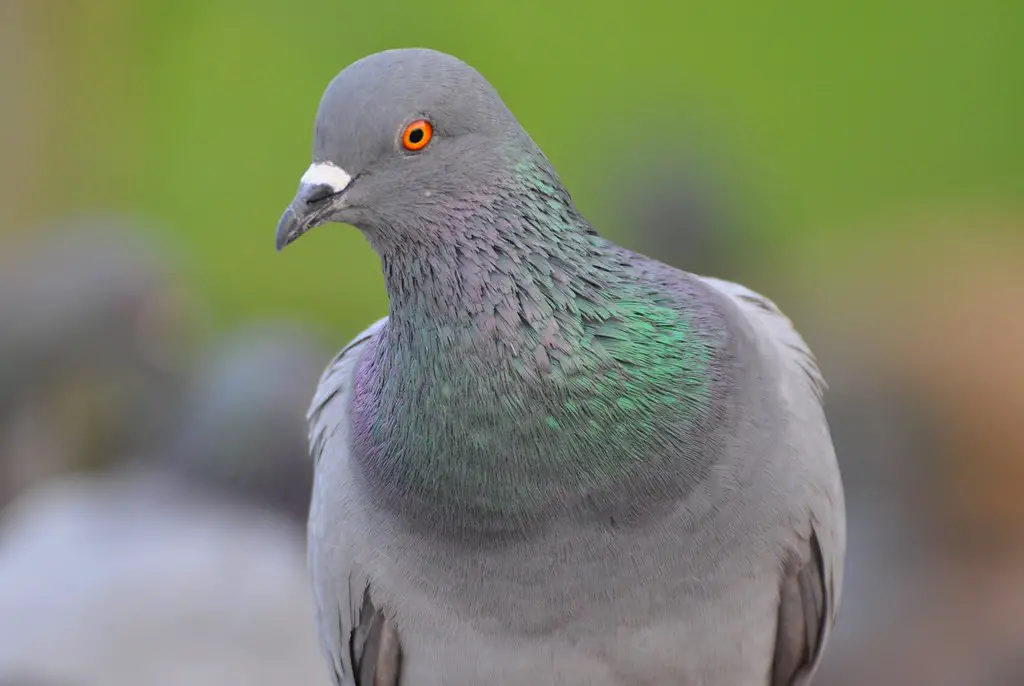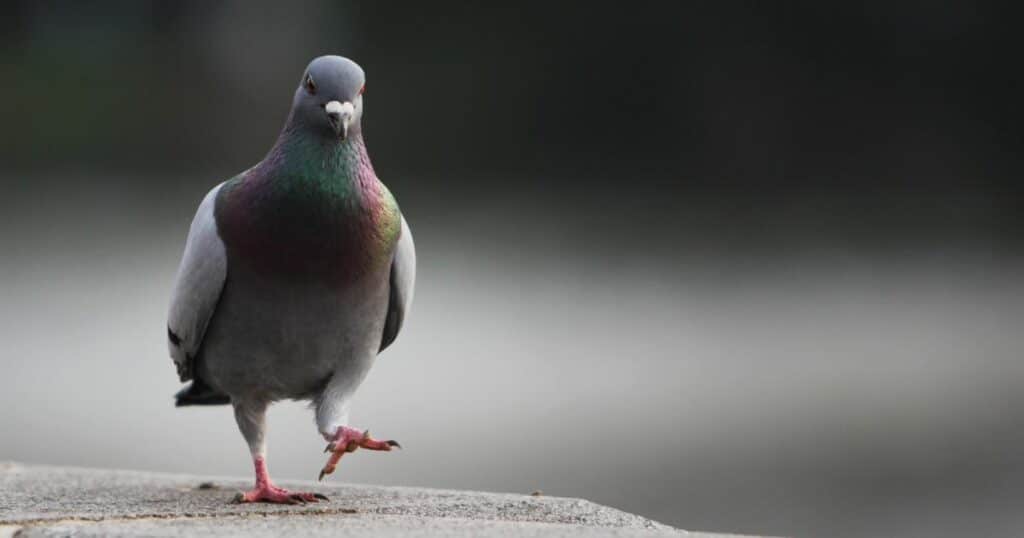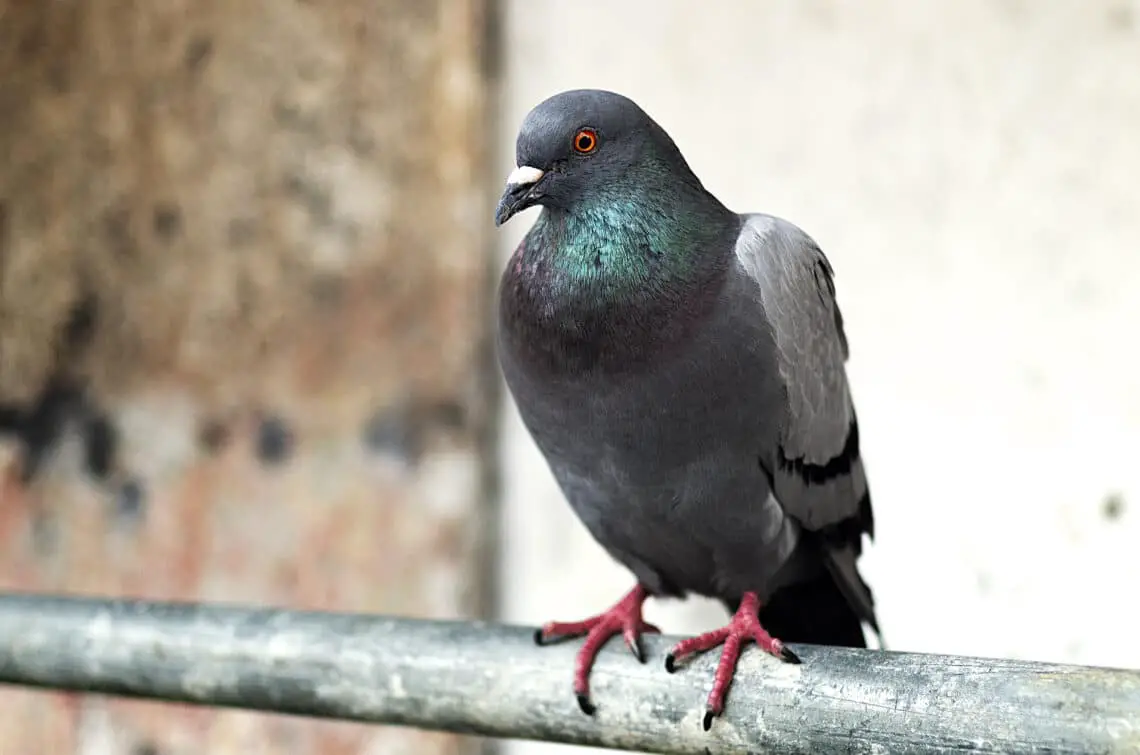Introduction
Are Pigeons Monogamous: As we embark on this journey into the world of pigeon monogamy, we will uncover the complexities of their relationships and shed light on the factors that influence their fidelity. Pigeons, often regarded as symbols of peace and love, have a rich history intertwined with human culture, making their social bonds all the more captivating.
We will also explore the significance of monogamy in the context of pigeon survival and reproduction. Does their choice of a single mate enhance their chances of successfully raising offspring in our ever-changing urban landscapes? What role do environmental factors play in shaping their partnerships? These are questions we will seek to answer as we unravel the mysteries of pigeon monogamy.
So, whether you’re a passionate birdwatcher or simply curious about the intricacies of the animal kingdom, join us in this exploration of attract pigeon relationships, where love, loyalty, and the quest for survival converge in the bustling cityscapes that pigeons call home.

Do pigeons have one mate for life?
Pigeons mate for life, but if one partner dies the survivor generally will attempt to find another mate. Pigeons show a strong affinity for human-built structures. Nests, a haphazard combination of twigs, leaves, and a few feathers, are built on window ledges, behind signs, and under bridges.
Pigeons do not always have one mate for life, but they do often form long-lasting and strong pair bonds with a single mate. This behavior is typically referred to as monogamy. In monogamous pigeon pairs:
Exclusive Partnership: A male pigeon (cock) and a female pigeon (hen) form an exclusive partnership and share responsibilities in building nests, incubating eggs, and raising offspring.
Multiple Breeding Seasons: Pigeon pairs can maintain their partnership for multiple breeding seasons, and some pairs remain together for several years.
Cooperative Reproduction: Both the male and female pigeons actively participate in the care of their young, including feeding and protecting the chicks.
While monogamy is common among pigeons, it is not an absolute rule for all individuals or all species of pigeons. There can be exceptions and variations in their mating behavior:
Serial Monogamy: Some pigeons may form new partnerships with different mates in subsequent breeding seasons.
Extra-Pair Copulations: In certain circumstances, pigeons may engage in extra-pair copulations, which means they mate with individuals other than their primary partner. This can occur for various reasons, including competition for mates or environmental factors.
Divorce and Mate Switching: In some situations, pigeons may split from their current mate and form new partnerships, often in response to changes in their environment or the loss of a mate.
While many pigeons do form long-lasting and exclusive pair bonds, monogamy is not a strict rule for all pigeons, and there can be variations and exceptions in their mating behavior based on environmental and social factors.
Do pigeons love their partners?
Wood pigeons are the touchy feely type. Some pairs mate for life but re-enforce their bond by taking it in turns to preen and canoodle with each other, not caring one jot for us embarrassed onlookers.
Pigeons do not experience love or emotions in the same way humans do. While pigeons form strong and enduring pair bonds and engage in behaviors that may appear affectionate, these behaviors are primarily driven by instinct, biology, and the need for reproductive success rather than by emotional love.
The pair bonds that pigeons form are essential for their survival and reproduction. These bonds involve cooperation in building nests, incubating eggs, and raising offspring. Pigeons often engage in courtship rituals, including mutual preening, billing (touching beaks), and cooing, which help reinforce their pair bond and facilitate the coordination of their reproductive efforts.
These behaviors are important adaptations for the species, ensuring the successful raising of offspring in a cooperative manner. While it is tempting to anthropomorphize and interpret pigeon behaviors as expressions of love, it’s important to recognize that their actions are driven by instinct and the biological imperative to reproduce and ensure the survival of their genes.
While pigeons form strong pair bonds and engage in behaviors that might seem affectionate, these behaviors should be understood as part of their reproductive strategy rather than expressions of emotional love as humans experience it.
Do pigeons mate in pairs?
Pigeons are generally monogamous, and they tend to stay with one mate for as long as possible. If one of the mated pair dies, the other will eventually choose a new mate, though often not immediately. When he’s ready to mate, a male pigeon chooses a nest site.
Yes, pigeons typically mate in pairs, forming strong and enduring pair bonds. These pair bonds are characterized by the following behaviors:
Monogamy: Pigeons are often described as monogamous because they generally form exclusive, long-term partnerships with a single mate. These bonds can last for multiple breeding seasons.
Courtship: Pigeons engage in courtship rituals to establish and strengthen their pair bonds. These rituals often involve displays of affection, such as mutual preening, billing (touching beaks), and cooing.
Nest Building: Once a pair bond is established, the male and female work together to build a nest. Nest-building is a cooperative effort, with both partners contributing materials to create a suitable nest for laying and incubating eggs.
Incubation: Both male and female pigeons take turns incubating the eggs, keeping them warm and protected. This shared responsibility demonstrates the cooperative nature of their pair bonds.
Chick Rearing: After the eggs hatch, both parents participate in caring for and feeding the chicks until they are old enough to fledge (leave the nest).
While pigeons primarily mate in pairs and exhibit behaviors associated with monogamy, it’s important to note that there can be exceptions and variations in their mating behavior, particularly in certain environmental or social contexts. In some cases, pigeons may engage in extra-pair copulations or switch partners, but the formation of pair bonds is a common and important aspect of their reproductive strategy.
Are pigeons loyal?
Pigeons are also loyal, loving companions who can express affection just as well as any other pet. Those who have been raised properly are quick to bond with knowledgeable owners. Pigeons often enjoy being taken out of their enclosure and being held and petted, or riding on a favorite human’s shoulder or head.
Pigeons are known for forming strong and long-lasting pair bonds, which can give the appearance of loyalty. However, it’s important to understand that their behavior is primarily driven by instinct and learned associations rather than the kind of emotional loyalty that humans might experience.
Here are some key points to consider regarding pigeon loyalty:
Pair Bonding: Pigeons are often described as monogamous because they typically form enduring pair bonds with a single mate. These bonds can last for multiple breeding seasons and involve cooperation in raising offspring.
Nesting and Incubation: Pigeon pairs work together in building nests and incubating eggs. They take turns caring for the eggs and chicks, which can be seen as a form of cooperation and dedication to their reproductive roles.
Migratory Behavior: In some pigeon species, such as homing pigeons, there is a strong homing instinct that leads them back to their home loft, demonstrating a form of loyalty to their place of origin.
Learned Associations: Pigeons can associate specific locations or individuals with sources of food. This learned behavior can result in pigeons returning to the same locations or interacting with specific people based on positive associations.
Can two male pigeons mate?
Same-sex marriages do happen amongst pigeons, so you don’t necessarily need to be certain of both birds’ sex to be a successful matchmaker. If at least one of the birds is female, a marriage is likely. Two female birds will often marry each other, especially if no males are present.
In the natural reproductive behavior of pigeons, mating typically occurs between a male pigeon (cock) and a female pigeon (hen). This is the standard pattern for most pigeon species.
However, same-sex pairings, including two male pigeons forming a pair bond, can occur in pigeons. These pairings may involve behaviors typically associated with mating, such as courtship rituals, nest-building, and even some incubation-like behaviors. While these behaviors might resemble those of a male-female pair, it’s important to note that same-sex pairings do not result in the production of offspring.
The reasons for same-sex pairings in pigeons can be varied and may include a shortage of potential mates of the opposite sex or the presence of individuals that display behaviors typically associated with the opposite sex. Same-sex pairings can also occur in captive environments where pigeons may not have access to potential mates of the opposite sex.
In conclusion, while same-sex pairings can be observed in pigeons, they do not result in reproduction. Pigeons, like many other species, primarily engage in mating behaviors with individuals of the opposite sex to produce offspring.
Do pigeons remember faces?
The team concluded that pigeons were capable of recognizing human faces, facial recognition and remembering when you were a big meanie, no matter how much you tried to make it up to them.
Pigeons have demonstrated an ability to recognize and remember human faces, but their facial recognition capabilities are not as advanced as those of humans. Research has shown that pigeons can be trained to recognize and distinguish between different human faces, suggesting that they have some level of facial recognition ability.
In experiments, pigeons have been trained to recognize photographs of human faces and could accurately differentiate between familiar and unfamiliar faces. They can also remember and recognize specific faces over an extended period, indicating a form of long-term memory for facial features.
However, it’s important to note that pigeons’ facial recognition abilities are limited compared to those of humans. Pigeons primarily rely on visual cues and patterns rather than the intricate facial recognition skills that humans possess. They may not recognize faces in the same way we do, and their abilities are likely more rudimentary and context-specific.
Pigeons have demonstrated some degree of facial recognition and memory for human faces, but their abilities in this regard are relatively basic compared to those of humans. Their recognition is based on simpler visual cues rather than the complex social and emotional aspects of human facial recognition.
Do pigeons remember kindness?
Birds Remember Your Kindness
From hanging bird feeders to planting native berry bushes to setting up bird houses and nest boxes, acts of kindness are not forgotten by birds. In fact, they will often frequent places where they know they’re welcome.
Pigeons, like many other animals, can exhibit behaviors that suggest they remember positive experiences or interactions with humans, which can be interpreted as a form of “remembering kindness.” These behaviors are often associated with operant conditioning, a type of learning in which an animal associates a specific behavior with a positive outcome.
If a pigeon is consistently fed by a kind and gentle person, it may learn to associate that person with a source of food. As a result, the pigeon may become more comfortable around that individual and may approach them in a friendly manner. This behavior can be seen as a form of recognition and positive association.
It’s important to note that pigeons do not have the same level of complex cognitive abilities or emotional depth as humans. Their behavior is primarily driven by simple learning processes and instincts. While they may remember positive experiences and respond to them, their behavior is not a reflection of the same kind of emotional attachment or gratitude that humans might feel.
Can pigeons be polygamous?
Pigeons are monogamous. Eight to 12 days after mating, the females lay 1 or 2 eggs that hatch after 18 days. The male provides nesting material and guards the female and the nest.
Pigeons are generally considered to be monogamous, meaning that they typically form long-term pair bonds with a single mate. However, while monogamy is the predominant pattern in pigeon behavior, there can be exceptions and variations, and some instances of polygamy have been observed in certain pigeon species.
Polygamy in pigeons can manifest in a few different ways:
Serial Polygamy: In some cases, pigeons may not form permanent pair bonds but rather engage in serial polygamy, where they have multiple mates over the course of their lives. This can occur when pigeons have different mates for different breeding seasons.
Simultaneous Polygamy: Although less common, there have been instances of pigeons, particularly in certain species like the Victoria Crowned Pigeon, where both males and females may simultaneously have multiple mates during a single breeding season.
Extra-Pair Copulations: Pigeons in monogamous pairs may occasionally engage in extra-pair copulations with individuals other than their primary mate. These instances may not necessarily lead to polygamy but can result in genetic mixing within a population.

Conclusion
The world of pigeon monogamy is a complex and fascinating one, filled with nuances that challenge our understanding of these common urban birds. While pigeons are often associated with monogamy, it’s important to recognize that their relationships exist on a spectrum, and not all pigeon pairs are strictly monogamous for life.
Pigeons do exhibit strong pair bonds and often form enduring partnerships, with both the male and female sharing responsibilities in nest-building, incubation, and chick-rearing. These pairs can remain together for multiple breeding seasons, displaying a level of devotion and cooperation that is indeed remarkable.
However, it’s also true that some pigeons may engage in extra-pair copulations or switch partners under certain circumstances, particularly when environmental conditions are challenging or when a mate is lost. Such flexibility in their social behavior highlights their adaptability to the dynamic urban environments they inhabit.
Ultimately, pigeon mate monogamy serves as a testament to the intricate interplay of biology, environment, and social dynamics within the avian world. These resilient birds have found ways to navigate our ever-changing urban landscapes while forging connections that are as diverse as the cities they inhabit.




No Comments